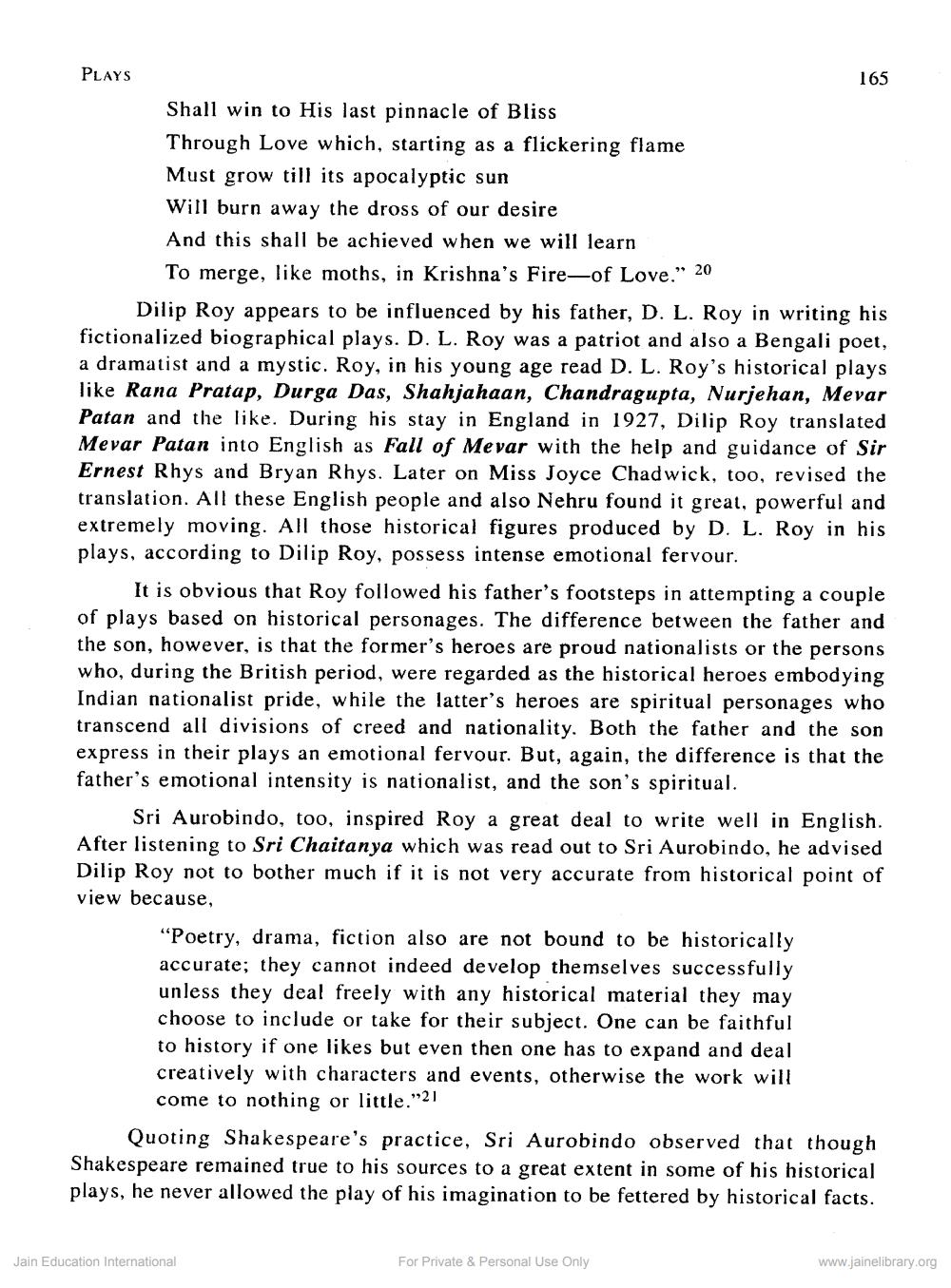________________
PLAYS
165
Shall win to His last pinnacle of Bliss Through Love which, starting as a flickering flame Must grow till its apocalyptic sun Will burn away the dross of our desire And this shall be achieved when we will learn
To merge, like moths, in Krishna's Fire—of Love." 20
Dilip Roy appears to be influenced by his father, D. L. Roy in writing his fictionalized biographical plays. D. L. Roy was a patriot and also a Bengali poet, a dramatist and a mystic. Roy, in his young age read D. L. Roy's historical plays like Rana Pratap, Durga Das, Shahjahaan, Chandragupta, Nurjehan, Mevar Patan and the like. During his stay in England in 1927, Dilip Roy translated Mevar Patan into English as Fall of Mevar with the help and guidance of Sir Ernest Rhys and Bryan Rhys. Later on Miss Joyce Chadwick, too, revised the translation. All these English people and also Nehru found it great, powerful and extremely moving. All those historical figures produced by D. L. Roy in his plays, according to Dilip Roy, possess intense emotional fervour.
It is obvious that Roy followed his father's footsteps in attempting a couple of plays based on historical personages. The difference between the father and the son, however, is that the former's heroes are proud nationalists or the persons who, during the British period, were regarded as the historical heroes embodying Indian nationalist pride, while the latter's heroes are spiritual personages who transcend all divisions of creed and nationality. Both the father and the son express in their plays an emotional fervour. But, again, the difference is that the father's emotional intensity is nationalist, and the son's spiritual.
Sri Aurobindo, too, inspired Roy a great deal to write well in English. After listening to Sri Chaitanya which was read out to Sri Aurobindo, he advised Dilip Roy not to bother much if it is not very accurate from historical point of view because,
"Poetry, drama, fiction also are not bound to be historically accurate; they cannot indeed develop themselves successfully unless they deal freely with any historical material they may choose to include or take for their subject. One can be faithful to history if one likes but even then one has to expand and deal creatively with characters and events, otherwise the work will
come to nothing or little.”21
Quoting Shakespeare's practice, Sri Aurobindo observed that though Shakespeare remained true to his sources to a great extent in some of his historical plays, he never allowed the play of his imagination to be fettered by historical facts.
Jain Education International
For Private & Personal Use Only
www.jainelibrary.org




